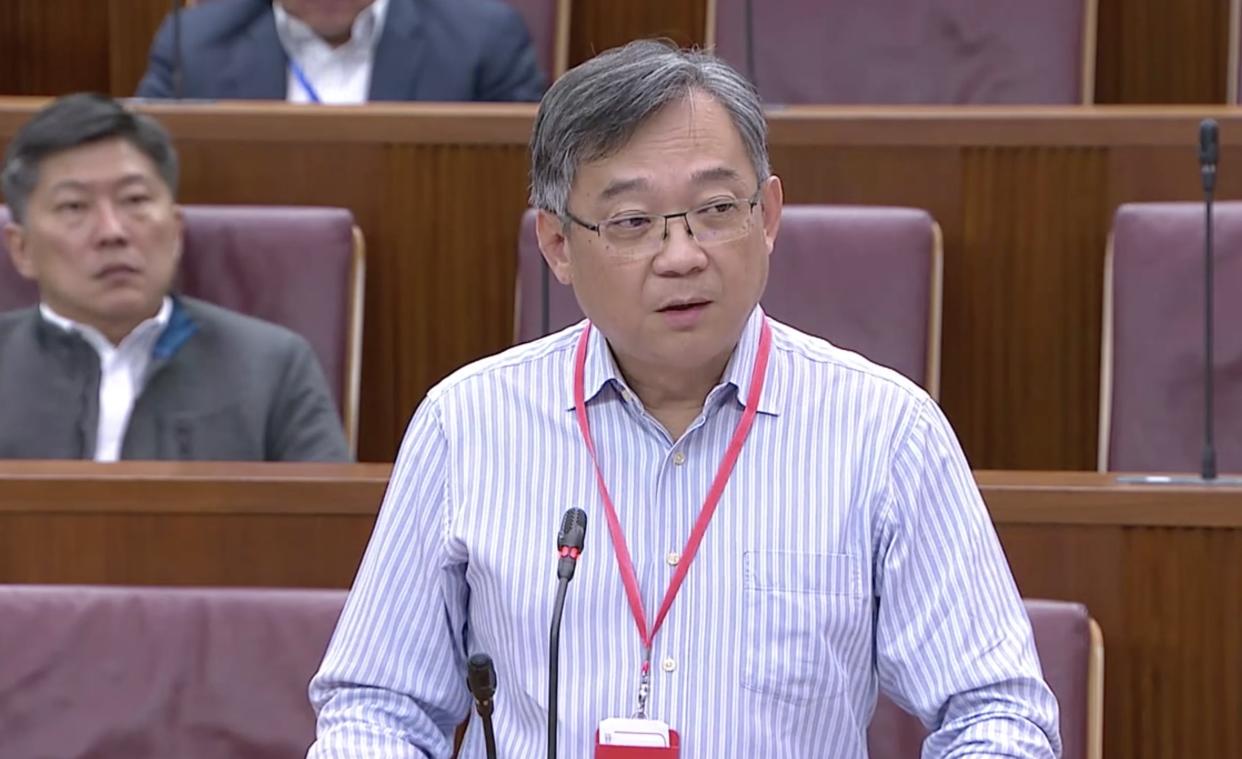COVID-19: Temporary Bill passed to allow government to enforce enhanced safe distancing measures

SINGAPORE — The Singapore government passed the COVID-19 temporary measures Bill in Parliament on Tuesday (7 April), giving it the legal basis to enforce the enhanced safe distancing measures that began on the same day.
In tabling the Bill, Health Minister Gan Kim Yong said that the heightened measures are intended to curb a further rise in cases and pre-empt widespread community transmission, by significantly reducing movements and interactions in both public and private places.
“In other words, we need to apply brakes, hard brakes, to slow the infection. This is what we mean by a circuit breaker,” he said.
“This circuit breaker is not a holiday. It is an important opportunity for us to work together to slow the infection significantly.”
Power to close premises, restrict people movement
The first key provision of the Bill is to provide the power to close premises to minimise interactions and reduce the risk of COVID-19 transmission; while allowing others to remain open, so that essential services critical to Singapore’s security and to Singaporeans’ daily living can continue to be provided.
For premises that remain open, the Bill also provides powers to set requirements for them to carry on their businesses. For example, food and beverages outlets can provide only take-away or delivery services, and premises that remain open must implement strict safe-distancing measures such as minimising staff onsite and staggering staff work hours.
The second key provision of Bill is to allow the Health Minister to put in place measures to restrict the movement of people in specified places, as well as to limit the usage of specific premises and facilities.
Gan said that while the majority of Singaporeans will be responsible and heed the call to stay at home or comply with safe distancing measures when they are outside, there will inevitably be a few individuals who do not treat the situation seriously and blatantly disregard the rules.
“In doing so, they place themselves and others around them at risk of infection,” he said. “We will not hesitate to take action against such persons and send a strong signal to prevent such behaviour from negating our collective efforts during this crucial circuit breaker to slow down the infection.”
Prohibiting events, allowing for requisition of resources
The Bill also allows the Health Minister to prohibit events and gatherings or impose conditions on how they are conducted and on the participation in such activities. This will enables the government to better regulate events and gatherings, including those that take place on private properties, during this circuit breaker period.
“We will now also disallow social gatherings of any size in both private and public spaces. This would include having private parties or gatherings with families or friends not living together, at home or in public spaces such as in parks and HDB void decks,” Gan said.
The Bill also provides the option to bring the Requisition of Resources Act (RORA) into effect, for the purposes of containing COVID-19 and caring for the patients and those at risk. This allows for the requisition of land, property or services needed to ramp up Singapore’s healthcare capacity and public health capabilities.
Gan said that while the government is grateful that many hotel and building operators have voluntarily supported national COVID-19 efforts, “time is often of the essence and we cannot rely solely on commercial negotiation or the goodwill of these resource owners”.
“We will need to move fast. Should the RORA be invoked, the government would exercise these provisions judiciously and work closely with affected stakeholders,” he added.
Enforcement action on those who flout orders
The Bill will empower the Health Minister or any authorised public officer to appoint enforcement officers to take action against individuals, business owners or entities which flout the orders and requirements.
The penalties are aligned with those under the Infectious Diseases Act. For first-time offenders, the penalty is a fine of up to $10,000 and/or imprisonment of up to six months. For second or subsequent offences, the penalty is a fine of up to $20,000 and/or imprisonment of up to a year.
Stay in the know on-the-go: Join Yahoo Singapore's Telegram channel at http://t.me/YahooSingapore
Related stories:
COVID-19: No need for in-person nominations under proposed election provisions
COVID-19: Man who breached Stay-Home Notice to eat bak kut teh charged
COVID-19: Toh Guan Dormitory declared isolation area after 14 confirmed cases
COVID-19: Singapore reports 66 new cases, 2 new clusters at dorm and preschool, total 1,375



